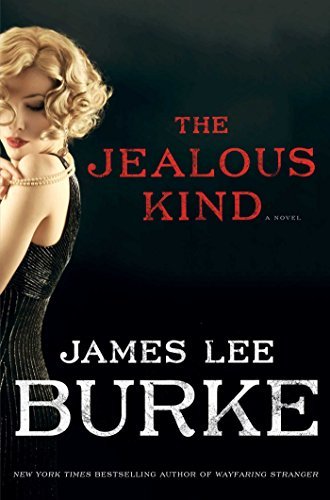
Part of Series
New York Times bestselling author James Lee Burke brings readers a captivating tale of justice, love, brutality, and mysticism set in the turbulent 1960s. The American West in the early 1960s appears to be a pastoral paradise: golden wheat fields, mist-filled canyons, frolicking animals. Aspiring novelist Aaron Holland Broussard has observed it from the open door of a boxcar, riding the rails for both inspiration and odd jobs. Jumping off in Denver, he finds work on a farm and meets Joanne McDuffy, an articulate and fierce college student and gifted painter. Their soul connection is immediate, but their romance is complicated by Joanne’s involvement with a shady professor who is mixed up with a drug-addled cult. When a sinister businessman and his son who wield their influence through vicious cruelty set their sights on Aaron, drawing him into an investigation of grotesque murders, it is clear that this idyllic landscape harbors tremendous power—and evil. Followed by a mysterious shrouded figure who might not be human, Aaron will have to face down all these foes to save the life of the woman he loves and his own. A prequel to James Lee Burke’s masterful Holland family trilogy, Another Kind of Eden is both riveting and one of Burke’s most ambitious works to date. It dismantles the myths of both the twentieth-century American West and the peace-and-love decade, excavating the beauty and idealism of the era to show the menace and chaos that lay simmering just beneath the surface.
Author

James Lee Burke is an American author best known for his mysteries, particularly the Dave Robicheaux series. He has twice received the Edgar Award for Best Novel, for Black Cherry Blues in 1990 and Cimarron Rose in 1998. Burke was born in Houston, Texas, but grew up on the Texas-Louisiana Gulf Coast. He attended the University of Louisiana at Lafayette and the University of Missouri, receiving a BA and MA from the latter. He has worked at a wide variety of jobs over the years, including working in the oil industry, as a reporter, and as a social worker. He was Writer in Residence at the University of Louisiana at Lafayette, succeeding his good friend and posthumous Pulitzer Prize winner John Kennedy Toole, and preceding Ernest Gaines in the position. Shortly before his move to Montana, he taught for several years in the Creative Writing program at Wichita State University in the 1980s. Burke and his wife, Pearl, split their time between Lolo, Montana, and New Iberia, Louisiana. Their daughter, Alafair Burke, is also a mystery novelist. The book that has influenced his life the most is the 1929 family tragedy "The Sound and the Fury" by William Faulkner.





